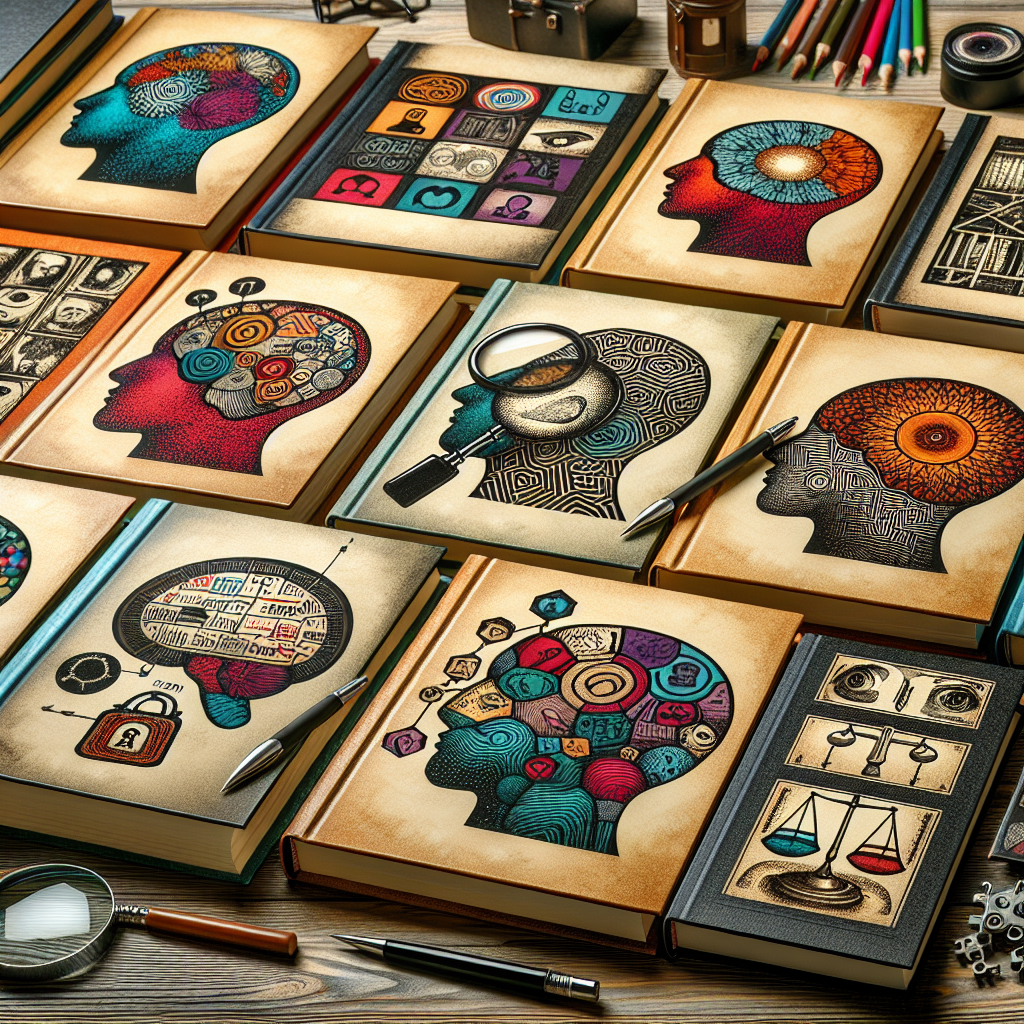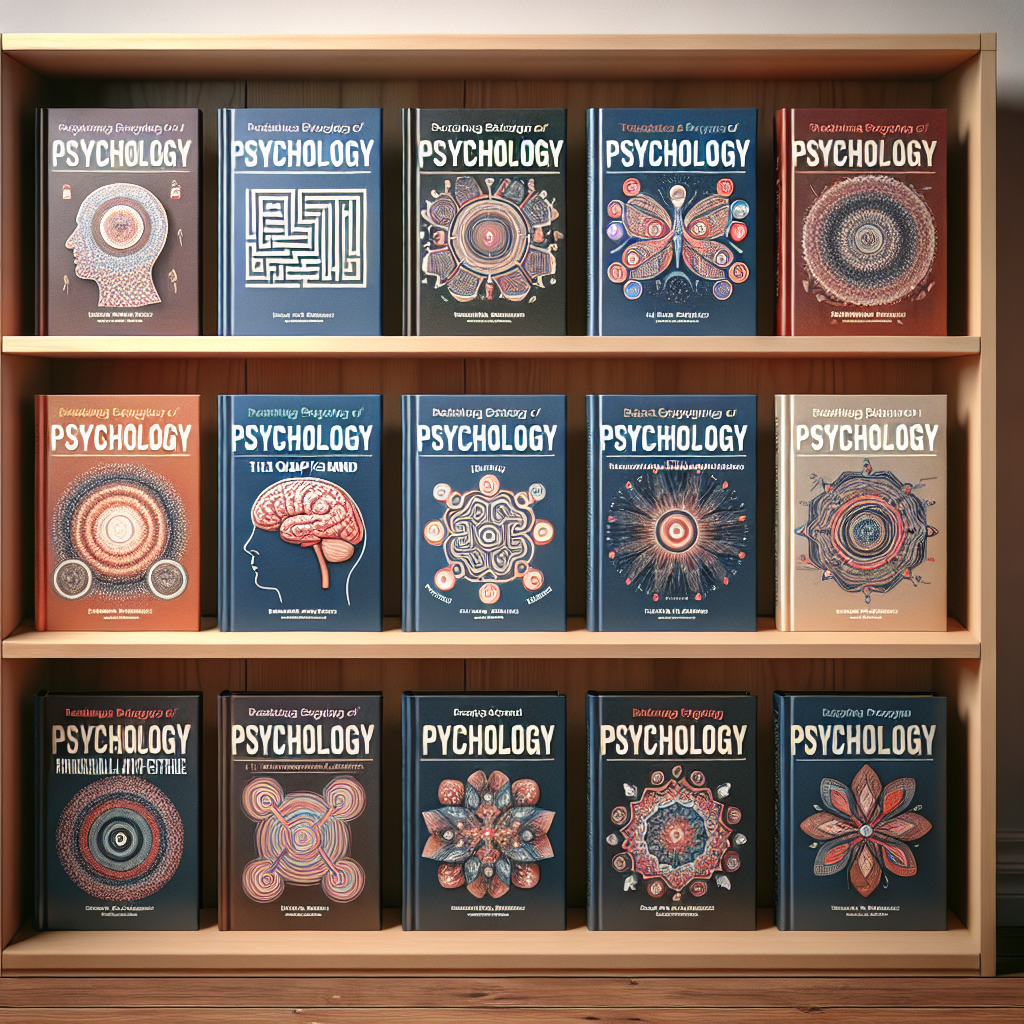As an Amazon Associate I earn from qualifying purchases.
12 Eye-Opening Books About Psychology

Psychology, the study of the mind and behavior, has fascinated scholars, practitioners, and laypeople alike for centuries. Its broad scope, from the neural underpinnings of cognition to the vast complexities of human relationships, offers endless avenues for exploration. For those eager to delve into this captivating field, a wealth of literature awaits. Here, we present 12 eye-opening books about psychology that promise to enlighten, challenge, and inspire readers.
1. “Thinking, Fast and Slow” by Daniel Kahneman
Nobel laureate Daniel Kahneman introduces readers to the two systems that drive the way we think. System 1 is fast, intuitive, and emotional; System 2 is slower, more deliberative, and more logical. Kahneman explores the impact of these systems on our decisions, offering profound insights into how we can avoid the pitfalls of fast thinking and benefit from the rationality of slow thinking.
2. “Man's Search for Meaning” by Viktor E. Frankl
In this monumental work, psychiatrist Viktor E. Frankl chronicles his experiences as a concentration camp inmate during World War II and describes his psychotherapeutic method, which involved identifying a purpose in life to feel positively about and then immersively imagining that outcome. Frankl's message is powerful: finding meaning in the most horrific circumstances can help us to move forward with renewed purpose.
3. “The Power of Habit” by Charles Duhigg
Charles Duhigg explores the science behind why habits exist and how they can be changed. Through compelling narratives, Duhigg presents an entire new understanding of human nature and its potential for transformation. This book is a must-read for anyone interested in the forces that shape our actions.
4. “Quiet: The Power of Introverts in a World That Can't Stop Talking” by Susan Cain
Susan Cain champions the introvert in a society that seems to favor the extrovert. Through research in psychology and neuroscience, Cain argues that introverts are undervalued and showcases their unique strengths. This book is a call to rethink our attitudes towards introversion and to better harness the talents of introverted individuals.
5. “Flow: The Psychology of Optimal Experience” by Mihaly Csikszentmihalyi
Mihaly Csikszentmihalyi's concept of “flow,” a state of heightened focus and immersion in activities, has influenced psychology, education, and the arts. Csikszentmihalyi outlines how individuals can achieve flow and how it contributes to happiness and creativity. This book is an exploration of how to live a life of engagement and satisfaction.
6. “Influence: The Psychology of Persuasion” by Robert B. Cialdini
Robert B. Cialdini explains the psychology of why people say “yes”—and how to apply these understandings ethically in daily life. Through six universal principles of persuasion, Cialdini teaches readers how to become skilled persuaders and how to defend themselves against manipulation. This book is essential reading for anyone interested in the art and science of influence.
7. “The Man Who Mistook His Wife for a Hat” by Oliver Sacks
Neurologist Oliver Sacks recounts the case histories of patients lost in the bizarre, apparently inescapable world of neurological disorders. Sacks's compassionate storytelling and philosophical musings on the human condition make this book a fascinating journey into the complexities of the mind.
8. “Grit: The Power of Passion and Perseverance” by Angela Duckworth
Psychologist Angela Duckworth shows that the secret to outstanding achievement is not talent but a special blend of passion and persistence she calls “grit.” Through her research, Duckworth demonstrates how grit can be learned and cultivated, offering valuable lessons for anyone striving to succeed.
9. “Predictably Irrational: The Hidden Forces That Shape Our Decisions” by Dan Ariely
Dan Ariely reveals the multiple biases that lead us to make unwise decisions. Through a series of original experiments, Ariely exposes the surprising truths behind our irrational behavior and suggests ways we can make better choices, both for ourselves and society.
10. “Drive: The Surprising Truth About What Motivates Us” by Daniel H. Pink
Daniel H. Pink examines the three elements of true motivation—autonomy, mastery, and purpose—and offers smart and surprising techniques for putting these into action. Pink challenges traditional notions of motivation driven by rewards and fear of punishment, advocating for a more fulfilling approach to personal and professional life.
11. “The Happiness Hypothesis: Finding Modern Truth in Ancient Wisdom” by Jonathan Haidt
Psychologist Jonathan Haidt tests various psychological theories against ancient wisdom to find common ground that can apply to modern life. Haidt weaves together philosophy and science to explore how we can cultivate happiness in our lives, making this book a thought-provoking read on the pursuit of well-being.
12. “Mindset: The New Psychology of Success” by Carol S. Dweck
Carol S. Dweck presents the idea of the “fixed” versus “growth” mindset and how these mindsets affect our ability to learn and grow. Dweck's research has implications for education, business, and personal development, making “Mindset” a transformative read for anyone looking to change their path in life.
Conclusion
The realm of psychology offers endless insights into the human condition, and the books listed above provide a gateway to understanding the complex interplay between mind, behavior, and society. From the neuroscience of decision-making to the power of perseverance, these works illuminate various facets of psychological science and its applications to everyday life. Whether you're a seasoned psychologist, a student of the human mind, or simply a curious reader, these 12 eye-opening books about psychology are sure to enrich your understanding of yourself and the world around you.
Amazon and the Amazon logo are trademarks of Amazon.com, Inc, or its affiliates.






















































